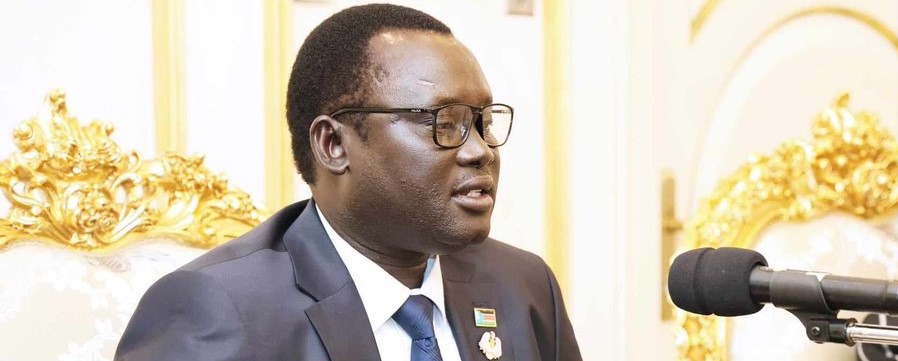Jonglei State Governor Mahjoub Biel Turuk has shed light on his administration’s monthly expenses, revealing how his office is managing finances after what he described as a challenging period under his predecessor, Denay Jock Chagor.
In a press conference held on Thursday at the State Coordination office in Juba, Turuk emphasized the importance of transparency, outlining the state’s financial allocations and the ongoing steps to establish a more structured and accountable governance system.
During the briefing, Turuk explained that his predecessor had failed to present a fiscal year budget, which contributed to a leadership vacuum in Jonglei State.
“The former governor held the Council of Ministers meeting only seven times in four years. There was a vacuum in the state as the Governor was based in Juba and only visited the state.
“You know well that he has been staying in a hotel in Juba so there have been no security and Council of Ministers’ meetings and they could not prepare a budget,” Turuk said.
“When I first went to the state, I made sure people reported to work at 8:30am and went home at 5pm. The Governor and the ministers all reported to work at 8:30am until 5pm. Secondly; we resumed the Council of Ministers’ meetings and held 17 sessions in 7 months.
“The Minister of Finance was impeached by parliament but the Governor never wanted to remove him, but now I have fired him and a new minister will present the budget to parliament,” he explained.
Turuk noted that the state was currently running on collections from Personal Income Taxes totaling to US$190,000.
He said his office was currently receiving US$10,000 monthly for the operations of his family house, US$9,000 for hiring a V8 vehicle, US$6,000 for house rent in Juba, and US$6,000 for renting a hardtop land cruiser car for security escort, adding up to US$31,000 governor’s office monthly expenditure.
The Governor said his deputy’s office was allocated a total of US$22,000, while the state advisors received US$3,600 among other costs.
In recent months, South Sudan has faced challenges as civil servants, including teachers and doctors, have gone on strike, demanding salary arrears.
Observers attribute the government’s inability to pay salaries to poor management of none-oil revenues and a decline in oil production.
Separately, the Governor said insecurity in the state was mainly caused by child abductions.
“In Jonglei State, there are three things causing insecurity, the first is cattle theft, then child and women abductions between Jonglei and the Greater Pibor Administrative Area,” he said
“The government in Jonglei is working along with its Greater Pibor Administrative Area partner to address this issue so that the youths have a good cooperation,” he added.
He also blamed poverty for insecurity, saying the youth ready for marriage tended to steal cattle to pay for dowry, adding that his office was working with their counterparts in the Greater Pibor to address those challenges by establishing special courts.
Another issue causing insecurity, the Governor noted, are the many arms in the hands of civilians.
He said it was hard to distinguish between the soldiers and civilians, a situation that requires to be addressed as a matter of urgency.
Turuk also identified revenge killings as a cause of insecurity, regretting that there were inadequate prison facilities to accommodate suspects.
“There are no prison facilities in the counties so there is a problem with the rule of law and a person who kills, goes scot-free without being held accountable, prompting the relatives of the victims to take revenge,” he added.




